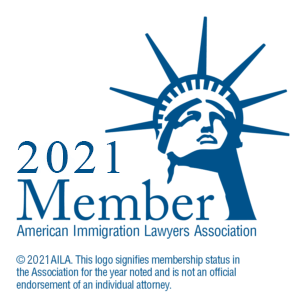The immigration attorneys in our office can assist applicants who wish to obtain a waiver of the two-year foreign residency requirement upon completion of their stay in the U.S. in J visa status. Upon completion of their stay in the United States, certain J visa holders are subject to the two-year foreign residency requirement. The law contemplates that J visa holders will take the skills they have acquired in the United States to their home country, and reside there for at least two years to utilize their training. If that individual wishes to remain in the U.S. by changing to a different non-immigrant status (most commonly, the H visa), or apply for Permanent Residence before residing in their home country for two years, that individual must seek a waiver of the two-year foreign residency requirement. A Michigan J waiver lawyer could help someone with this process to avoid this requirement.
Application of the Foreign Residency Requirement
The foreign residency requirement commonly is applied in three situations. The first is when the exchange visit was directly or indirectly financed by the United States or a foreign country’s government. The second situation occurs when the visitor is engaged in a field which is designated by the State Department in conjunction with the alien’s home country as being in short supply in the visitor’s country, or commonly called, the “skills list”. The final situation requiring a foreign residency is when the visitor, who is a physician or Medical Doctor, has come to the United States to receive graduate medical education or training.
When Can Someone Receive a J Waiver?
J waivers may be obtained under several conditions: when there is an exceptional hardship to a United States citizen or legal permanent resident, their spouse, or child; when there is fear of persecution by applicant upon their return to their home country; when a no objection letter is obtained from the home government of the applicant (not applicable to foreign doctors practicing medicine); if an interested U.S. governmental agency provides certification that the applicant’s stay in the U.S. is in the public interest; or, if applicant is a foreign physician and a state department of health requests the waiver.
In addition, it is possible to argue to USCIS that the two-year requirement should not have been applied in the first place. All too often, embassies apply the two-year requirement in error. It is possible, in some cases, to demonstrate that no waiver is necessary and that the two-year requirement is not applicable. The most common waiver is based on a “no objection letter” issued by the alien’s home country. Although every country has its own procedures for obtaining a J waiver no objection letter, there are common steps in procuring this letter and presenting this to the U.S. Department of State. A lawyer in Michigan could review someone’s case and determine if they are eligible to apply for a J waiver.
Process for Obtaining a J Visa Waiver
For the majority of situations, the J visa holder must begin by submitting a Data Sheet application and application fee, along with other required documents and information, to the Department of State, thus creating a record file for the J visa holder. A case number will be issued at that time. The file and this number will be necessary to the applicant for the remaining steps in the procedure to obtain a waiver. The case number must be used thereafter on all documents and envelopes submitted to the State Department.
In addition to the case number, the State Department will provide a list of documents needed for the initial review the waiver application, and general instructions on how to proceed with that waiver. Usually, the next step is to contact the J visa holder’s embassy in the United States to follow their own country’s requirements for the process. Each nation has a different procedure. However, the Department of State procedure must be followed in all cases.
The applicant should begin this process as early as possible. USCIS (formerly the INS) processing times can be lengthy, and individual countries’ governmental offices can also be slow in responding to requests. If the waiver is not received and a new status is not applied for (and approved by USCIS, in most instances) before the end of the J training period, the person likely must depart or will be deemed out of status and could possibly have difficulty changing to a new status. A Michigan attorney could help an applicant with the process for receiving a J waiver. Call today to get started.










